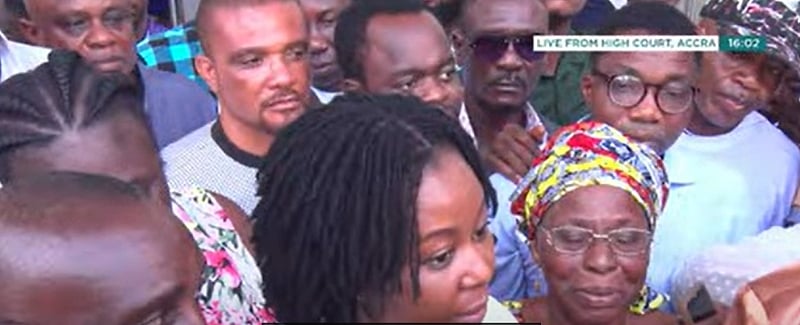The political landscape in Ghana remains charged as the High Court prepares to deliver its ruling on a pivotal mandamus application filed by the New Patriotic Party (NPP) concerning the parliamentary election results in four key constituencies: Tema Central, Okaikwei Central, Techiman South, and Ablekuma North. The NPP’s application seeks to compel the Electoral Commission (EC) to complete the collation of results, alleging that the process has been unduly delayed. This legal battle follows a contentious election period marked by disputes over vote counts and declarations of winners. The court’s decision, now scheduled for January 4, 2025, is eagerly awaited by both parties, as it could significantly impact the composition of Parliament and the overall political equilibrium. The case highlights the challenges faced by Ghana’s electoral system, underscoring the need for transparent and efficient processes to ensure public trust and maintain stability.
At the heart of the Ablekuma North constituency dispute is Ewurabyna Aubynn, the National Democratic Congress (NDC) parliamentary candidate, who has expressed unwavering confidence in a favorable High Court ruling. Declared the MP-elect on December 10, 2024, after the collation of results from a majority of polling stations, Aubynn maintains that she legitimately won the election and that any attempts by the NPP to challenge the outcome will be unsuccessful. Her declaration came amidst a tense atmosphere at the Greater Accra Regional Collation Centre, illustrating the heightened political stakes and the fierce competition between the NDC and NPP. Aubynn’s optimistic stance reflects her belief that the court will uphold the will of the people and recognize her as the rightful representative of Ablekuma North.
The NPP’s legal challenge stems from their contention that the EC failed to complete the collation process in the four disputed constituencies between December 8, 2024, and January 1, 2025. Represented by a team of lawyers led by Gary Nimako, the NPP argues that this delay is a breach of electoral regulations and that the court must intervene to ensure the integrity of the electoral process. Their application for a mandamus order seeks to compel the EC to finalize the collation and declare the rightful winners in these constituencies. The NPP’s argument hinges on the principle of timely and complete collation as a cornerstone of a fair and transparent election, emphasizing that any deviation from this principle undermines public trust and potentially disenfranchises voters.
The High Court’s decision to adjourn to January 4, 2025, follows a six-hour hearing on January 1, during which both parties presented their arguments. The court also addressed an earlier objection by the NDC, which questioned its jurisdiction to entertain the NPP’s application. The dismissal of this objection paved the way for the substantive hearing and the eventual ruling. The length of the hearing underscores the complexity of the legal issues involved and the significant political ramifications of the case. The court’s careful consideration of the arguments presented suggests a commitment to ensuring a just and equitable outcome.
Ewurabyna Aubynn’s response to the court proceedings reinforces her confidence in the legitimacy of her victory. Speaking to journalists after the January 1 hearing, she emphasized that “delay is not denial,” suggesting that the NPP’s legal maneuvers are merely delaying the inevitable recognition of her win. She expressed faith in her legal team’s performance and reiterated her belief that the “will of the people will still stand.” Aubynn’s unwavering optimism serves as a rallying point for her supporters and reflects the NDC’s determination to defend her declared victory.
The impending High Court ruling holds significant weight for the political future of Ghana. It will determine the final outcome of the parliamentary elections in the four disputed constituencies, potentially shifting the balance of power in Parliament. The decision will also set a precedent for future electoral disputes, influencing the interpretation of electoral laws and procedures. Beyond the immediate political implications, the ruling will serve as a test of the strength and independence of Ghana’s judiciary and its capacity to uphold the principles of democracy and fairness. The nation awaits the court’s decision with bated breath, hoping for a resolution that promotes stability, reinforces public trust in the electoral system, and paves the way for a smooth transition of power.














